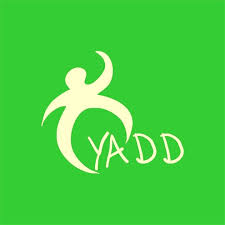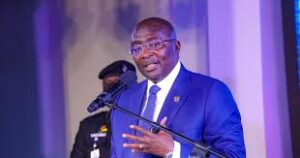YADD Ghana Advocates for Widespread Support Toward Constitutional Amendments

The Youth Alliance for Democratic Development (YADD Ghana), a youth-led civil society organization, has launched a strong call for sweeping reforms to Ghana’s 1992 Constitution, aimed at making the country’s supreme law more relevant to contemporary governance challenges. The group’s focus is on increasing youth participation and ensuring that regional voices are better represented in national decision-making.
During a public forum held at the University of Ghana on July 16, James Kofi Martey, Executive Director of YADD Ghana, emphasized that the constitutional review process should be approached as a non-partisan, national exercise. He stressed that it must be rooted in principles of justice, transparency, and the long-term aspirations of all Ghanaians, especially future generations.
“This constitutional reform is about reaffirming our commitment to democratic values and building a foundation strong enough to support the Ghana we want to see in years to come,” Martey said. “Our Constitution should not just reflect where we are now but where we hope to be as a nation.”
Though Ghana’s 1992 Constitution has been foundational in the country’s democratic journey, Martey argued that evolving social and political realities call for a bold, comprehensive review. “Democracy is a continuous process, not a destination,” he remarked. “As our society changes, so must the laws that govern us. This is not about causing instability but about renewing our democracy to ensure it remains resilient and relevant.”
Governance Reforms and Institutional Checks
YADD Ghana, established in 2021, advocates for a broad range of reforms centered on civic engagement, accountable governance, and empowering youth voices. At the forum, Martey outlined several key reform proposals, with a strong emphasis on improving governance structures and reducing political interference in critical state institutions.
One major proposal is ending the practice where Members of Parliament simultaneously hold ministerial positions. Martey questioned whether this dual role compromises Parliament’s ability to exercise effective oversight over the executive branch. “We must reconsider if MPs serving as ministers disrupt the necessary balance of power and accountability,” he said.
The issue of prosecutorial independence also featured prominently in the discussion. Currently, the Attorney-General is appointed by the President, which Martey argued creates potential for political interference in legal prosecutions. He called for reforms to guarantee that prosecutorial decisions are made impartially, free from political considerations.
“How can we ensure that prosecutorial discretion is exercised without partisan bias?” Martey asked, underlining the need for constitutional safeguards.
Decentralization and Regional Representation
Martey further highlighted the importance of decentralizing governance and making sure that regional perspectives are fully incorporated in the reform process. “Our constitutional review must reflect the voices of all regions. It is essential that local communities have a platform for their concerns to be heard,” he said.
YADD Ghana insists that the constitutional review process should be guided by three fundamental principles: participation, transparency, and inclusivity. They advocate for nationwide public forums, clear timelines, and accessible documentation so that citizens can engage meaningfully in shaping the nation’s future.
Promoting Equality and Social Justice
The organization also urges that the Constitution explicitly guarantee protections for equality, social welfare, gender parity, and the rights of marginalized groups, drawing inspiration from international human rights standards.
Quoting from IMANI Africa, a respected policy think tank, Martey reinforced that Ghana’s democracy is strong because it can adapt. “A mature democracy thrives by evolving with the changing needs of its people,” he remarked.
A Collective Call for Action
In closing, Martey issued a heartfelt appeal to Ghanaians: “We must not view constitutional review as a tool for political gain. Instead, it should be embraced as a historic opportunity to strengthen our democracy and secure a better future for generations to come.”
The forum attracted a diverse audience, including youth leaders, civil society representatives, political science students, and members of the press, reflecting growing public interest in the country’s constitutional reform process.






